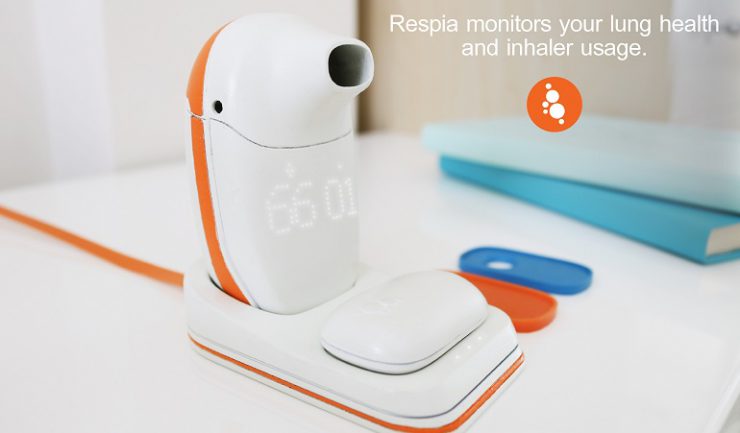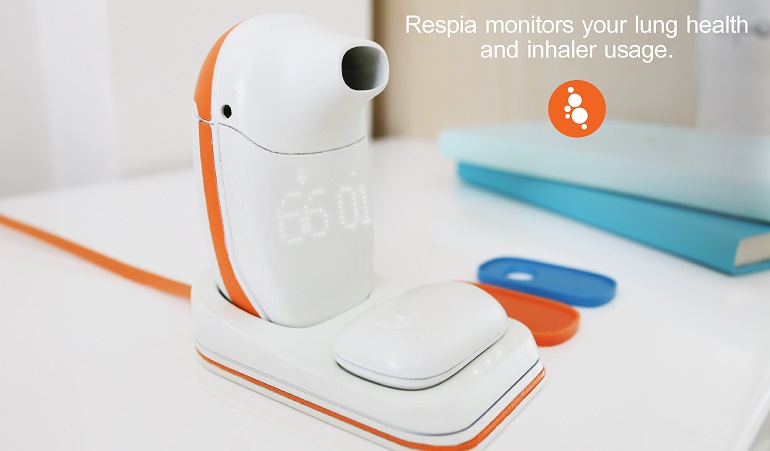By Kymberly Martin
Students from Monash University and UNSW.
An ingenious medical invention for transporting blood has taken out the 2016 Australian James Dyson Award for Monash University PhD student Amy Killen. The winning device, Thermalife, is a safe and cost-effective temperature controlled transport box.
It uses a specialised cooling process that utilises intermittent absorption technology coupled with reflective solar panels that supply a regenerative and reliable source of energy to maintain cooling during journeys, particularly in developing countries. Winning the national leg of the award will inject £2,000 into her project which Killen will put towards the development of a functional prototype.

Runner up in the International Award was University of New South Wales industrial design student, Katherine Kawecki who won for Respia (pictured above), an asthma management system that tracks and records user’s respiratory health and medication use. It is a complete redesign of existing aerosol inhalers, coupled with the world’s first wearable patch that tracks respiratory health. Asthma sufferers often experience mind-clouding symptoms such as shortness of breath and panic, making it difficult to know which medications to use and when to take them. The runner-up prize is $9,850.
The international award went to Isis Shiffer, a graduate from the New York City Pratt Institute of Design, for the EcoHelmet, a folding, recyclable helmet for bike share users. The cell structure of the helmet distributes impact evenly around the head and will protect the wearer from a blow coming from any direction. According to James Dyson, its simplicity belies an impressive amount of research and development. “I look forward to seeing EcoHelmets used in bike shares across the world.”
The James Dyson Award runs in 22 countries and is open to university level students and recent graduates, studying product design, industrial design, engineering and related disciplines who design “something that solves a problem”.

